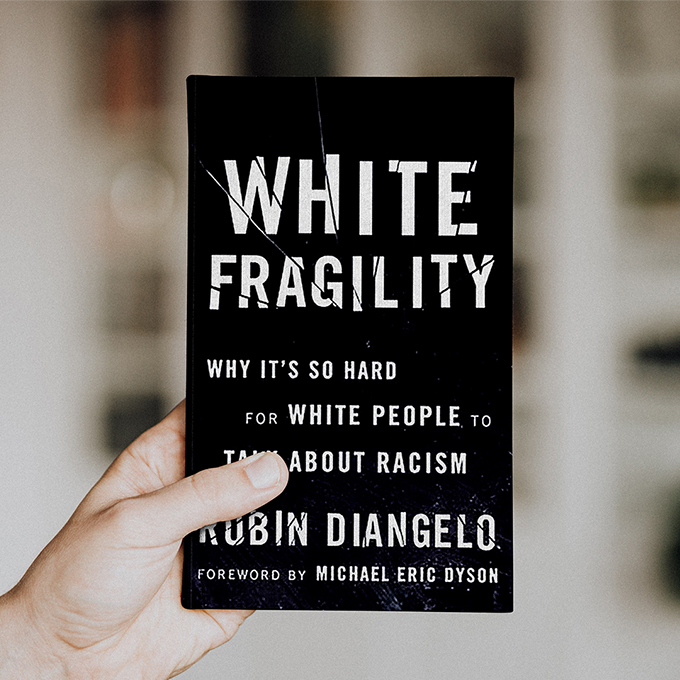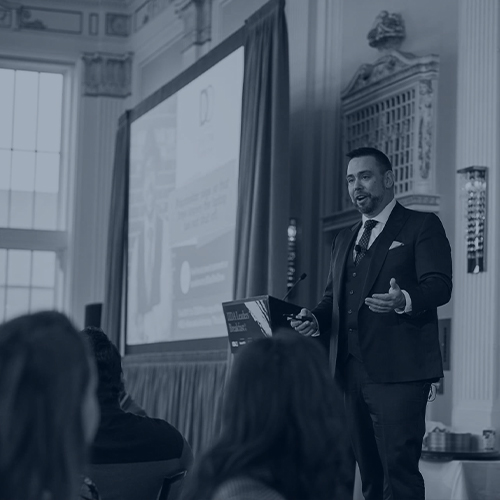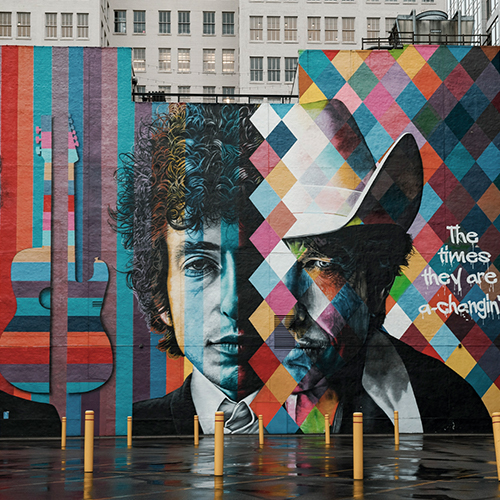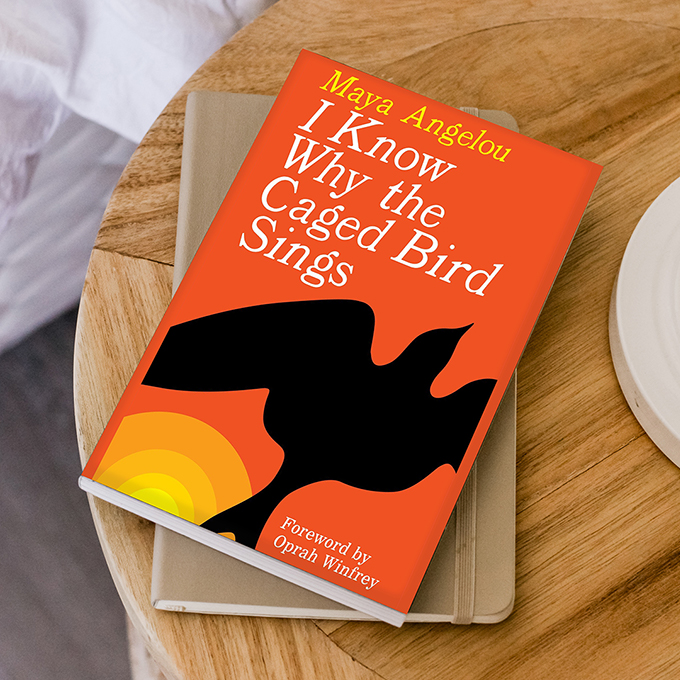Day One Listens – The Tragically Hip…A Long Time Running
“Music has always been a matter of Energy to me, a question of Fuel. Sentimental people call it Inspiration, but what they really mean is Fuel. I have always needed Fuel. I am a serious consumer. On some nights I still believe that a car with the gas needle on empty can run about fifty more miles if you have the right music very loud on the radio.”
― Hunter S. Thompson
Amidst the COVID-19 crisis, it is easy to forget sometimes that we are all still just human beings with unique perspectives and experiences. We have come from somewhere and are going elsewhere. School, work, family, friends, jobs—these are all part of a vast zeitgeist that help to shape who we are. My recent history with Drew has been peppered by experiences where music played a central role in forging lasting insights and memorable experiences. He and I first met in 2005 when I was working for the student union at the University of Toronto Scarborough. Each year, a retreat was held to transition the student leadership team and that year he was invited to provide a keynote address. At that time, his speaking experience was sparse. He was still years away from TedxToronto and 300 days on the road as a professional speaker. But suffice to say, even then he had a presence.
That afternoon, he spoke for what seemed like two hours straight. His talk was called The Tao of Conduct Becoming—a manifesto of sorts in which he encouraged emerging leaders to make the most of their post-secondary experience. At the time, I was a staff member there trying to figure out my own future, so the message resonated with me. He spoke eloquently of the people who had impacted him to-date—Marc Carnes, Mike Allison, Jason Abraham—and what others could take away from his experiences with them. And then he told The Cheque Story. Most of you by now are familiar with The Lollipop Moment. Some of you may have also since heard The Larry Story. But The Cheque Story was my first introduction to him. Like so many of his stories since, it smacked me right between the eyes.
I am not a sappy person. Most who know me will tell you that I have high expectations of people and even higher expectations of myself. I do not socialize unnecessarily. I largely keep to myself and enjoy solitude. But that day I heard something that moved me. I even cried. So afterwards I did what perhaps some of you have done when you first heard him speak. I went up to him and introduced myself. I shared with him some of my experiences. And I told him that I thought we could do some cool things together. A few weeks later, he facilitated a workshop for some of my staff colleagues in the office. And a few months after that, we hung out for the first time.

By then, Drew was already a huge fan of The Tragically Hip. He shared stories following the band on tour in the Maritimes during university and of the long car drives after shows where he enjoyed some of the best experiences of his life. He talked about his buddies Marc and Mike as if they were gods (a common occurrence I would later realize he does for all his good friends), grateful for the insight and wisdom they shared to help shape who he was becoming. My university experience was the antithesis to this. I did not get involved; largely avoided commitments to studying unless I absolutely I had too; and spent my time mostly listening to vinyl records where I discovered the roots of the hip-hop culture more generally and rap music in particular. I did not have many lasting friendships from those years.
I don’t remember exactly how the topic of going to a Tragically Hip show together came up. It might have been because I saw some mention of the band in his office, but I remember sharing my introduction to the band with him. Every summer during my university years, I worked for the parks department in Tay Township off Georgian Bay in Central Ontario. It was a chill gig. A few of us would be paired up together every day in a pick-up truck with lawn mowers and weed eaters and we would travel around to the ball diamonds and cut grass. During breaks, we would listen to Rock 95 in Barrie. And they played The Hip to death.
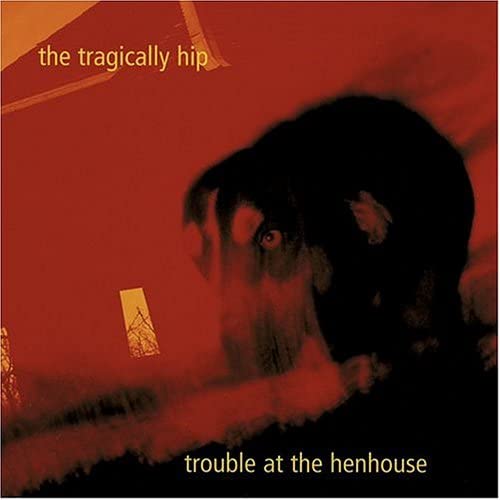
In one of my first summers there, Trouble at the Henhouse was released. Of course, I was aware of the band before. Blow at High Dough, New Orleans is Sinking, and Little Bones were already religious anthems where I was from. But Trouble was the first album I bought. The hits—Ahead by a Century and Gift Shop—were certainly memorable, the type of songs you could record back-to-back on a cassette tape and play repeatedly without realizing an hour had passed by. Yet, my favourite was Don’t Wake Daddy. It was grungy. It was representative of a time in my music history where rebellion and expression were becoming the norm.
I do not know how many of you have ever decided to transition work relationships to friendships, but it can be awkward sometimes. For Drew and me, it was probably no different. But The Hip helped smooth that road. That first show we went together was still the best one I ever saw. It was one of those turbulent spring days where the weather shifts between radiant sun and windy clouds. The show—at the Kee to Bala—was a small affair, likely designed to kick off the summer concert season for cottagers up in Muskoka. We both took the day off and drove up together. And that’s where I made a friend. Sure, the hits were playing, and the conversation moved anywhere from our preference of Gord with and without hair to whether anyone really remembered who Davis Manning was. But what I remember distinctly about that conversation was the notion that I made a lifelong friend. The whole trip home during the early morning hours afterwards—almost running on empty and swerving to miss a deer who jumped out in front of us at one point—was spent replaying the Hip show and replaying their songs.

A lot has happened since then. We built a leadership program together. We organized the largest lecture on campus at the time and then broke our own record multiple times. Our program was featured in the institution’s annual report before even academic programs. We went to more shows including when The Hip opened the K-Rock Centre, when we got stuck in a field in the middle of nowhere near Bobcaygeon, and when they played for the last time in Toronto before Gord’s untimely passing. We then went our separate ways professionally for a time and reconnected again two years ago. Since then, he has become an international best-selling author and is now inspiring audiences more than ever. The Hip—and music more generally— have been a constant theme in that time and a lasting principle of our friendship and partnership.
I had someone ask me recently what my favourite Hip album is. It is difficult a question to answer because for so many of the first listens of their albums necessitates further airplay just to be sure “Gord and company” hadn’t dropped off. A band defined by its singles, which have become the soundtrack for so many Canadians’ lives, does that. Yet, the answer was easy for me. Phantom Power was the first real album that Drew and I listened top-to-bottom on a road trip. It first occurred in 2014 amid what was a rapidly growing speaking schedule for him. He was invited to speak at Colgate University in upstate New York. Colgate is about a 5-hour drive from Toronto, so he thought it would be great for he and I to hike down there together to loop up-and-down the Finger Lakes and just to reconnect after what had been months away. By this time, we had already done two extended road trips including one out to Cape Breton, Nova Scotia as well as from Vancouver to Toronto through the Northern US (stopping at Yellowstone, Mount Rushmore, The Field of Dreams, and the Hundredth Meridian along the way). But this particular trip was the most memorable for me.
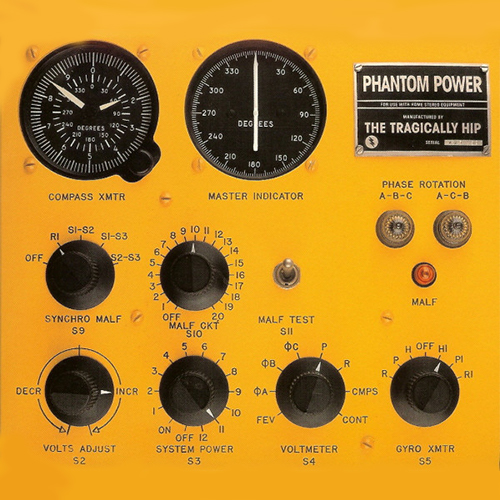
In some ways, Phantom Power was positioned as a breakthrough record for The Hip. It was their first American studio record in two years, and it was given a push by their new label, Sire. For some, the band had never quite delivered the power of their live shows on their records (even their live album), but that doesn’t mean they make bad records—they just sometimes make records that are uneven and mildly disappointing to the casual listener in comparison to what they are capable of achieving. It’s in that respect that Phantom Power delivers the unexpected for them—throughout the album, The Hip pump out their anthemic hard rock and boogie, turning in constantly solid songs and catchy tunes one after one another. That road trip created lasting impact for me. Thompson Girl was like “Neil Young-reincarnate.” The Rules had the simplest and yet memorable drum-and-bass line for a rock song ever. And Chagrin Falls would provide the impetus for yet another future road trip which has come to define our friendship. I love this album. It was the first Hip vinyl I ever bought. It is my favourite album of theirs. And it is the soundtrack for our friendship. It is still the album and the band that pull everything else away and expose our relationship for what it is: just two normal guys who share a mutual love of artistic expression and music.
Day One Listens is a new initiative by me, Allan Grant, Chief Operating Officer of Day One Leadership. Through stories of how music has influenced key parts of my life, I will regularly profile artists and albums that have created lasting impact, helped me to grow over time and practice self-respect every day.




